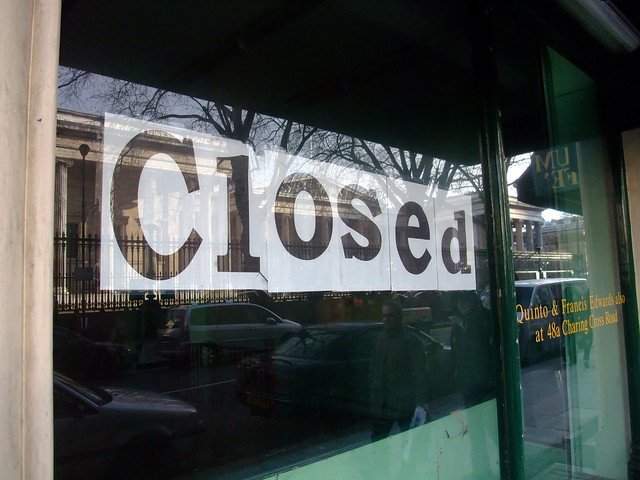America’s “will they, won’t they?” relationship with the next recession is reaching a fever pitch; a recent survey by the National Association for Business Economics finds that nearly 75% of economists predict a recession before 2021. While groupthink may be at play among economists, recessions don’t cause themselves and there’s a deep well of data (beyond bond yields) to support the idea that the economy is tempering itself.
Business investment (which was supposed to take off after 2018’s tax cuts) just hit a three-year low. Factory investment’s growth, while still positive, has been slowing for the last five months and shows no sign of picking up. Consumer sentiment, the largest driver behind the US’ still-positive GDP growth, dropped to a three-year low last month.
On top of all this, the Bureau of Labor Statistics issued a significant data revision of over half a million, stating that half a million fewer jobs were created last year than was previously reported. Economist Dean Baker writes:
“[W]hen we have large downward revisions, it usually is associated with a recession. The downward revision in 2009 was over 900,000 and 2002 it was over 300,000… It seems that something is not right with the economy.”
However, economists have a tendency to split hairs, and Baker doesn’t believe that this “something wrong” is worthy of crying wolf.
He notes that sectors which are less susceptible to the business cycle, namely medical spending and rent, have become a larger proportion of GDP than in the pre-2008 world. Why should this reassure us?
A recent piece in the Atlantic notes that millennials have been “forced to shell out hundreds of billions of dollars in rent as housing costs have skyrocketed in many urban areas.” Low wages and high student debt have stymied saving and forced down millennials’ home ownership rate. A downturn will “force Millennials to wait even longer to start accumulating wealth, making it far harder for them to accumulate any wealth at all.”
On top of this, a report published last year found that 51% of millennials “do not feel prepared to manage healthcare/medical expenses,” higher than both Gen-Xers and Boomers.
This reality is far from comforting, as Baker seems to insinuate; America is more vulnerable to a recession now than it was pre-2008.
Baker concludes his piece by noting that “we likely have some bad economic news to look forward to over the next year and a half, but probably not a recession.” As a recent graduate with an uncertain long-term financial outlook, “bad economic news” doesn’t sound any sweeter if its technical classification is “slowdown” rather than “recession.”
Of course, the vital recession-provoking time bomb is the trade war. This gaping, self-imposed wound that the United States is forcing on itself and the rest of the world has resulted in the largest year-over-year decrease in total world trade since the financial crisis.
The stupidity of this economic nationalist approach, being implemented by a man who, in his own words, has “second thoughts about everything,” has cost American businesses billions of dollars per month, driven up consumer prices, damaged the growth rates of both US imports and exports, and caused the level of farm-state bankruptcies to peak.
As Edward Luce notes in the Financial Times, “This is not a climate that is conducive to higher investment.”
The next US recession may be the product of a global slowdown rather than the cause of one. In the last ten years, 28% of global economic growth came from China, another in a long line of statistics screaming for the recognition of a new global Sino-economy. A Chinese slowdown could necessitate a US slowdown, making the idea of tariffs even more senseless.
In the New York Times, Neil Irwin writes:
“Often, a recession results when some widely held belief about the world turns out to be false. In 2001, it was that a technology boom would fuel the economy and the stock market indefinitely; in 2007, it was that the housing market would never melt down across all regions at once.
“This time around, the belief in doubt is that the world will only become more stable and interconnected over time, and that trade, currency and diplomatic relationships can be counted upon.”
This very well may be the case. Alternatively, the myth could be that the United States can dump whatever bad trade policy it wants onto China and Europe without any blowback because of the strength of its institutions and the command of its leadership, two convictions which are themselves becoming mythological.
Image credit: James Cridland

